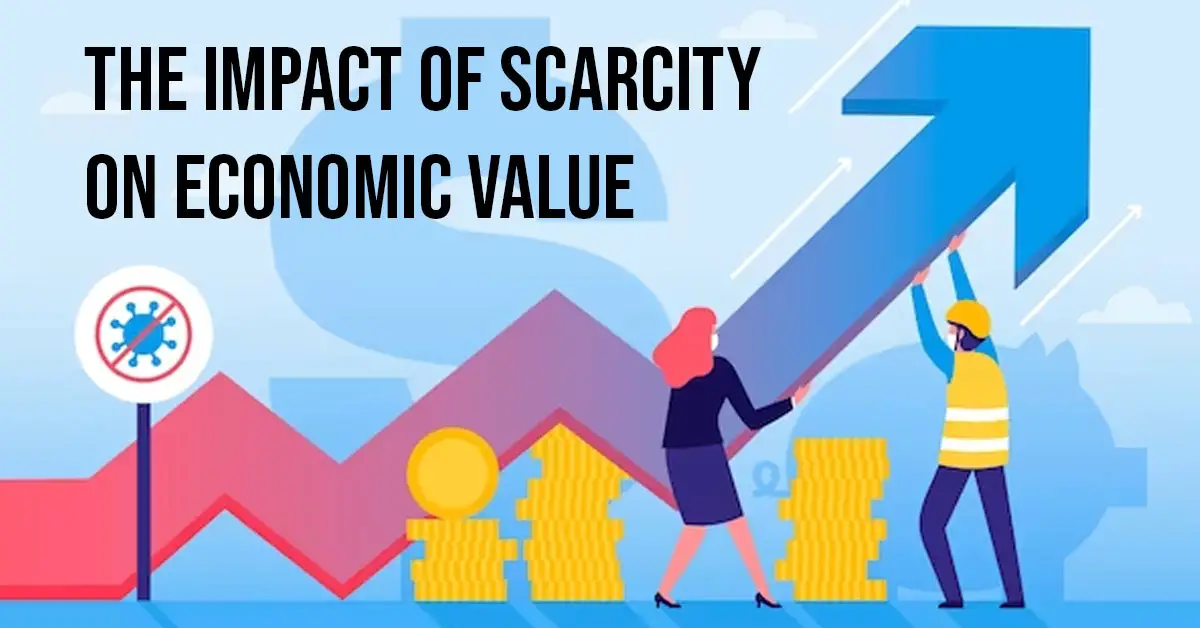Scarcity holds a pivotal position in the realm of economics, exerting profound influence on the value attached to commodities and services. This discourse dissects the intricate interplay between scarcity and economic worth, elucidating the mechanisms that underpin pricing dynamics and resource allocation.
Grasping the Essence of Scarcity: A Comprehensive Insight
Scarcity epitomizes the disparity between our desires and the finite nature of resources. It encapsulates not merely a paucity of goods but rather a shortfall relative to the collective demand. This scarcity dynamic significantly shapes the economic valuation of assets.
Supply-Demand Dynamics: The Anchors of Economic Flux
In the economic arena, the equilibrium hinges upon the delicate equilibrium between supply and demand. Scarce commodities incite heightened desire, triggering an upward surge in prices. It’s a fundamental axiom: rarity invariably begets higher valuation, as witnessed in the fervent pursuit of scarce items driving up their market worth.
Navigating Market Equilibrium Amidst Scarcity
Competitive markets typically gravitate towards an equilibrium point where demand aligns with availability. However, scarcity introduces an element of unpredictability, causing price fluctuations. Abundance might drive prices down, whereas scarcity ignites a bidding frenzy, amplifying the perceived value of goods.
Unveiling Opportunity Cost Amidst Scarcity
Scarcity compels individuals and enterprises to strategize resource utilization akin to solving a puzzle with limited pieces. Herein lies the concept of opportunity cost. Opting for one alternative necessitates forgoing the benefits associated with another. Thus, an item’s value is contingent not only on its rarity but also on the sacrifices made to acquire it.
The Psychology of Perceived Value
Perception profoundly influences value attribution. Scarcity imbues commodities with an aura of exclusivity, augmenting their perceived worth. The allure of rarity evokes heightened desirability among consumers, thereby amplifying the economic value of scarce items.
Exploring Investment and Speculation in Scarce Assets
Scarce assets emerge as lucrative ventures for investors and speculators. Be it precious metals, limited edition collectibles, or rare artifacts, their scarcity augurs potential appreciation in value. Investors anticipate soaring demand for these exclusive assets, thus fueling speculation and reshaping economic dynamics.
Governmental Intervention: Regulating Scarcity
Governments assume the role of arbiters in mitigating scarcity-induced disruptions. Regulatory measures such as quotas, tariffs, and trade restrictions modulate the availability of goods, consequently influencing their market value. Government interventions directly impact price dynamics by altering the scarcity quotient.
Deciphering the Nexus Between Scarcity and Economic Value
Envision a bustling candy store, teeming with eager patrons vying for a limited supply of coveted treats. This scenario epitomizes the essence of scarcity in economics.
Unraveling the Concept of Scarcity
Scarcity denotes the shortfall between demand and availability, accentuating the value of coveted commodities. Consider diamonds, forged under nature’s crucible; their rarity endows them with immense economic worth.
Supply-Demand Nexus: Catalysts of Economic Fluctuations
Scarcity catalyzes a surge in demand, propelling prices skyward. The scarcity-driven frenzy for VIP concert tickets exemplifies this principle, where limited availability escalates their market value.
Embracing the Impact of Scarcity on Pricing
Accessible commodities like water command modest prices in abundant locales. However, scarcity renders them invaluable in arid regions, exemplifying the correlation between scarcity and economic worth.
Concluding Insights
In summation, scarcity constitutes a linchpin in the determination of economic value. Its ramifications permeate supply-demand dynamics, investment paradigms, and governmental policies, underscoring its significance in economic discourse. Acquiring a nuanced understanding of scarcity is indispensable for navigating the complexities of markets and resource allocation.
FAQs about Scarcity and Economic Value:
- Q: What is scarcity in economics?
- A: Scarcity refers to the limited availability of resources compared to the unlimited wants and needs of society.
- Q: How does scarcity affect the economic value of goods?
- A: Scarcity increases the demand for goods, leading to higher prices and perceived value in the market.
- Q: What role does supply and demand play in determining economic value amidst scarcity?
- A: Supply and demand dynamics dictate the equilibrium price of goods, with scarcity driving up demand and consequently, prices.
- Q: Can scarcity impact investment decisions?
- A: Yes, scarcity often influences investment strategies, with rare assets often seen as more valuable due to their limited availability.
- Q: How do governments intervene in managing scarcity?
- A: Governments may implement regulations such as quotas or tariffs to control the supply of scarce goods and stabilize prices.
- Q: Is scarcity solely about physical goods?
- A: No, scarcity also applies to intangible assets like time or labor, where limited availability can influence their value.
- Q: Are there any downsides to scarcity in economics?
- A: While scarcity can drive innovation and efficiency, it may also lead to inequitable distribution of resources and market inefficiencies.
Read Also:

